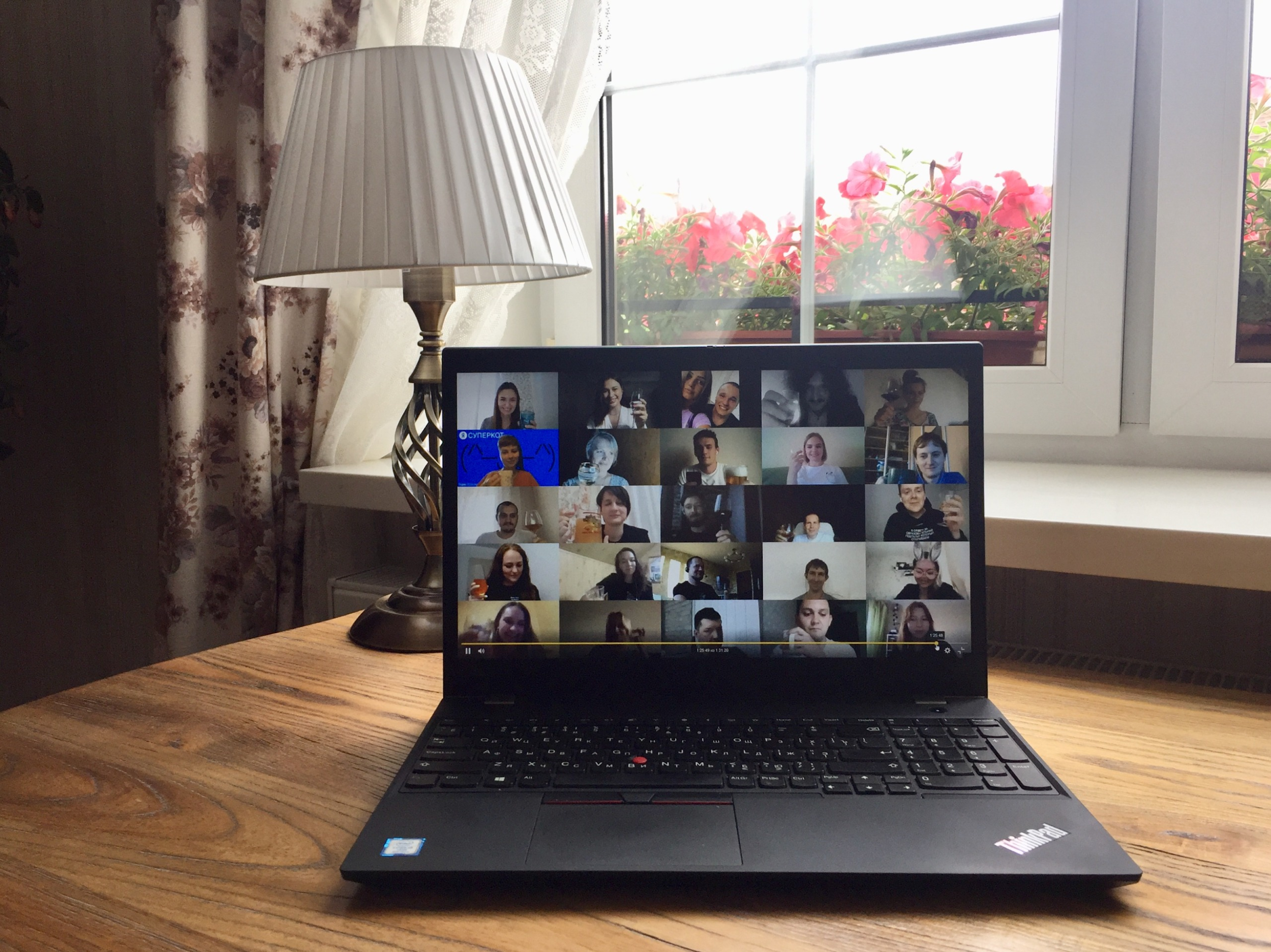It can be mentoring in the company, when a more experienced employee takes on a helping a younger one. Or mentoring students, as in our Practicum.

In this post, we will understand what mentoring is, what a mentor does, and why mentoring is useful not only for beginners, but also for experienced programmers.
Who is a mentor in the Workshop
A mentor is an experienced specialist whose task is to help a student overcome difficulties in learning, to become more confident in himself and his strengths. Yes, a person can learn everything himself, and among us there are such examples. But there are also those for whom it is important that there is a professional with extensive experience nearby who will prompt and help.
In the Practicum, students master all the theory in an online simulator and perform independent work that is checked by code reviewers. Mentors, on the other hand, help students to move to a new profession faster and more efficiently. They share experience, help with motivation, support and introduce the student into a professional context.


Each mentor supervises a group of dozens of students: communicates in Slack, conducts group webinars, and helps with difficulties. And so throughout the training. All mentors go through the School of Mentors: we train them before they start communicating with students, and we supply all the materials. It is often thought that the mentors in the Workshop are employees of Yandex itself, but in fact we employ people from many other companies: Sberbank, MailRu Group, Huawei, Wildberries, Joom, ATOL, Home Credit, Beeline. Sometimes mentors come to us, openly declaring that they are looking for Juns from among the students. And we are only glad of this, because it additionally helps the children with employment.


What a mentor does

Mentors often drop in at graduation students, and this is always a very touching moment
1. Helps to go towards the goal. From the very beginning, the mentor helps the student to determine the goal and during training leads him to it in the optimal way: somewhere he gives specific knowledge, somewhere helps to find an answer to a difficult question, somewhere he supports motivation.
— , , . , . , , , , . — . , , — , .
, « Data Science»,
2. Shares real life examples. Communicating with students, mentors talk about their professional experience, personal victories and failures. Stories like these are important because they show students that they are not the first on this path and that it is not easy for everyone. 3. Supports. The mentor must respond to the emotional state of the student, because it happens that the student does not learn something very well or starts to burn out. And at this moment it is important to connect and help. In most Russian companies, it is not very customary to praise people for doing a good job. In the case of teaching and the first steps, praising students is important and necessary. The mentor is sure to give feedback and motivate the student.


It is worth saying here what the mentor does not do : he is not responsible for the student's choice and results. Our students are adults, and their development is their responsibility.
The dark side of mentoring
It is important to understand that mentoring is extra work and it takes time. You need to be in Slack almost every day and prepare for webinars.
Webinars are not the main training channel, but a good help for our online simulators and independent work. At webinars, mentors discuss complex topics and arrange life coding. The topics of the webinars are quite serious, you need to have time to properly prepare and make a presentation that you are not ashamed of.
. 30 . . . , , - . 8–10 .[Let's clarify that mentors do not check the work everywhere; code reviewers do it in programming school courses.]
, « Data Science», Rubbles
No one is immune from receiving not very good reviews from students. All people are different, someone may think that not enough attention is paid to him, someone will be dissatisfied with the manner of a particular mentor to explain, someone will simply begin to stress from the abundance of new topics. Of course, we change the mentor if the guys didn’t work well, but in general, this can demotivate both sides of the process.
And if the mentor really cares for his students and sincerely worries about their failures, then this is additional stress for him.
What mentoring does for the mentor himself
1. Additional confidence in himself and his leadership qualities The
mentor, in conditions close to real ones, hones managerial responsibilities, understands what he needs to tweak and correct: give useful and developmental feedback, work with motivation, maintain their own boundaries, be a navigator for beginners in a new field. After this experience, you will not be afraid to manage teams, and it can also be a successful line on your resume if you are counting on a management position.
My leader moved to another team, the question arose: to look for a new leader or to appoint one of us? My boss asked me to take her place. Considering that I had a mentoring experience, I was not so scared of this - it was a new stage. If I didn’t have this experience, I would not be sure that I could.2. Development of soft skills
Irina Goltsman
Mentoring is a great tool for leveling up soft skills. You will have to communicate with different people, explain difficult things to them and find an approach to everyone. You will learn to give feedback and resolve conflict situations.
With soft skills and a good level of programming, there are more chances of success in your business than with just a good level of programming. Of course, there are specialists who write code well and do not like to communicate with people, but in order to develop and make a career, they need to write code conditionally better than anyone else. If you cannot provide this level, then it will be hard for you without soft skills.3. Ability to transfer knowledge and delegate
Ivan Cherdantsev
Even if in the future you do not expect to take a position that will be based on this skill, it will come in handy anyway. The more accessible you explain something and share your knowledge, the easier it is for everyone to work. For example, it will be much easier for you to onboard new teams or individual employees.
, , . , — , - . , , . , , , , . « — » « ».4. A clear understanding of the problems of new employees
If you have been working in a company or in a specific team for a long time, you have most likely forgotten that very feeling of a newcomer. Because of this, you may not notice any difficulties that arise for new employees during a probationary period or internship. Working with students, you will have to remember what it is like to immerse yourself in a new topic, adapt in a team. This will help you better understand new employees and find a suitable place for them in the team.
5. New knowledge
Yes, mentoring is also a kind of training. No matter how you understand the topic, there can always be a student who, with his fresh eyes, will ask an unexpected question, and to answer it you will have to rummage through textbooks or manuals, learning new things along the way.
6. Ability to Overcome Impostor Syndrome
Mentoring and experience in explaining difficult terms is very helpful in coping with this syndrome. You pass on knowledge, they listen to you, ask questions, you upgrade with the audience - you are not an impostor.
7. Love and gratitude
Mentors receive a lot of love and gratitude from students. Imagine: you lead a person for nine months, and he bam - and gets a job at Intel or ivi. Or to a lesser-known company, but still achieves its goal - gets a new job. And you helped him in this. And this is a huge thrill.
School for mentors
For those wishing to work with students in the Practicum, a School of Mentors was created . This is a two-week intensive course on how to interact with students and transfer knowledge. It includes five webinars of 2.5 hours and small homework assignments lasting 30-60 minutes.
At school, they talk about healthy communication and motivation, teach people to explain complex things in simple words, work out conflict situations and conduct concise and understandable workshops. Training of future mentors is free. The next recruitment will start in March.
If you are interested in learning more about the school, let us know in the comments, and we will prepare a separate post about it.
What to see
Presentation by Sonya Tehazheva, head of the backend development faculty, "Mentoring, or how to bring fire back into your relationship with programming" (watch from 4:15:00).
What to read
Books that our mentors recommend.
- “Nonviolent Communication” by Marshall Rosenberg - about the essence of the process of nonviolent communication: many examples of where, when and how to use it.
- "Jedi Techniques" , Maxim Dorofeev - about how to quickly and for the benefit of yourself and those around you to clear the Inbox, create a working list of tasks and achieve results.
- “Rework: Business Without Prejudice” , Jason Fried and David Heinemeier Hensson, on how to start a business alongside your main job.
- Remote: An Office Not Required , by Jason Fried and David Heinemeier Hensson, about productive collaboration remotely, anywhere, anywhere, anytime, anywhere.
- "Who. Solve your problem number 1 ” , Jeff Smart and Randy Street - about solving“ the main problem of business today ”according to The Economist - ineffective hiring.
We will be glad if you write in the comments your attitude towards mentoring, both on the part of the student and the mentor: the pros, cons and pain points that you would like to avoid.
And if you see a future mentor in yourself, feel free to apply to Yandex.Practicum and become a hero who leads your students to their goals.